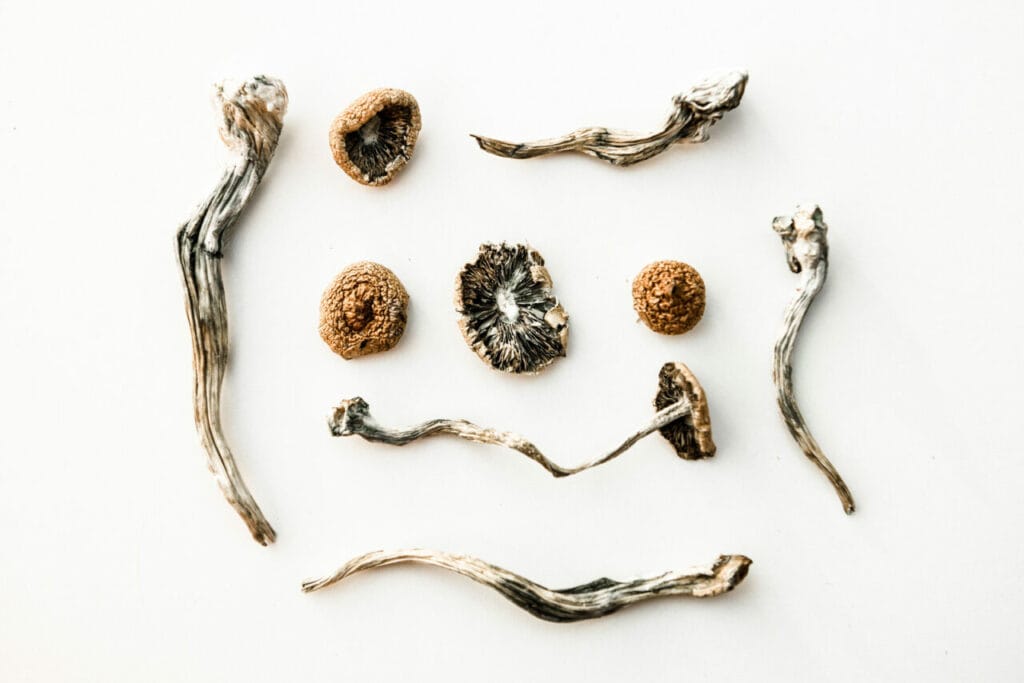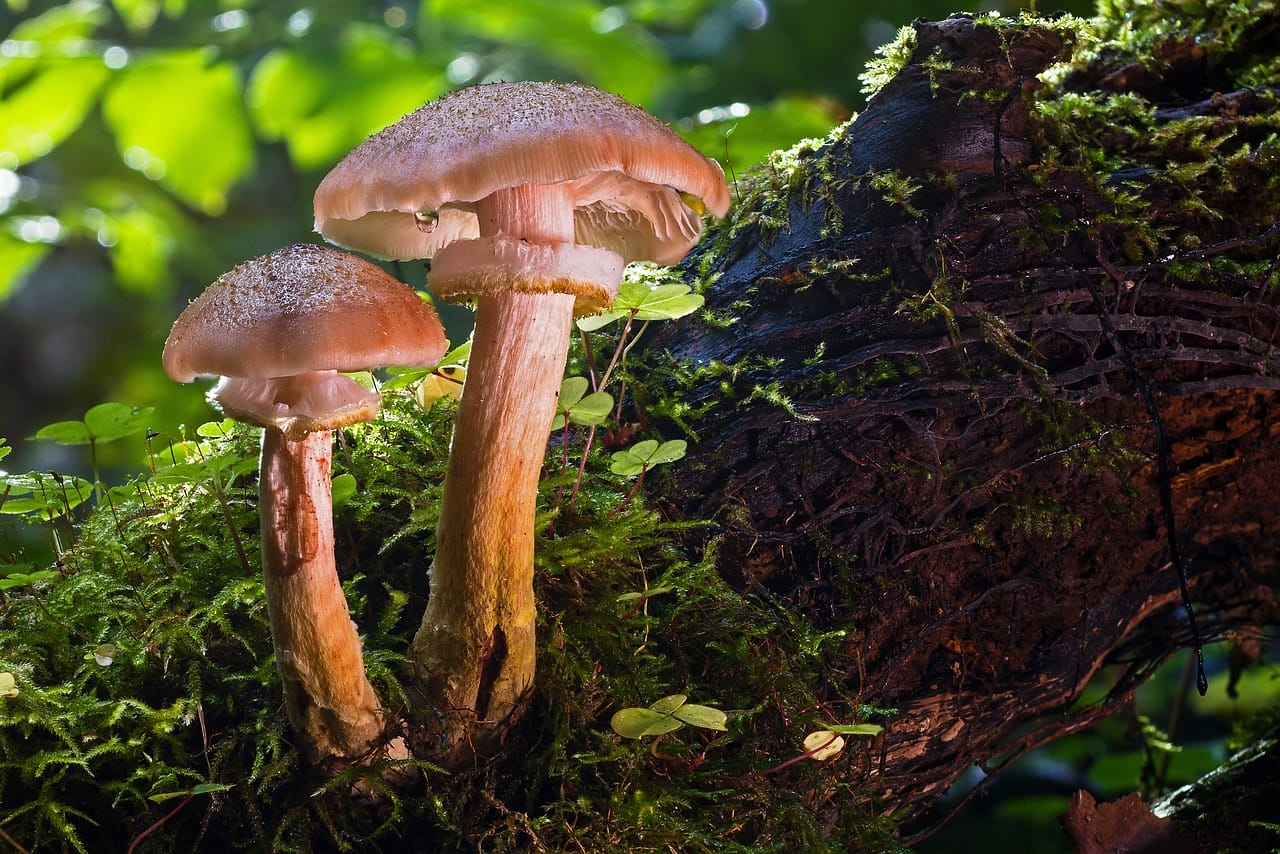Magic mushrooms were initially perceived by many Canadians as a psychedelic substance primarily used for recreational purposes. However, the scientific examination of the active component, psilocybin, revealed its powerful effectiveness in treating a range of mental health issues.
As more information emerges, our comprehension of psilocybin’s uses continues to evolve. Increased understanding makes it easier for individuals to access these products via magic mushroom delivery services. A recent study sheds light on its role in human consciousness, which could potentially explain its significant impact on the human brain. Let’s delve deeper into this fascinating exploration of magic mushroom products.
Key Points:
- Psychedelic magic mushrooms may have influenced the cognitive functioning of early humans, contributing to their survival.
- Mushrooms play a significant role in neurological health due to their capacity to alleviate symptoms of PTSD, depression, and anxiety.
- The influence of psilocybin on consciousness and brain function might enhance creativity, introspection, and abstract thought.

Historical Usage and Importance of Magic Mushrooms
Historical documentation indicates that our ancestors have been utilizing the power of psychedelic magic mushrooms since ancient times. Indigenous societies employed them in sacred rituals and traditional ceremonies to honor their gods. These mushrooms are found worldwide, especially in subtropical and tropical areas, including South and Central America, the Caribbean, Southeast Asia, and Africa.
The Role of Shrooms in Ancient Civilizations
The Indigenous peoples of Mexico have long relied on these fungi for spiritual enlightenment, divine communication, and religious ceremonies. The Aztec Indians of South America referred to them as “God’s Flesh” and incorporated them into healing rituals.
Evidence of use has been found dating back to:
- Roughly 10,000 years ago in Australia
- About 7,000 years ago in North Africa
- Around 6,000 years ago in Spain.
Some researchers point to these discoveries as evidence of the widespread historical consumption of psilocybin. When people ate these mushrooms, they experienced a euphoric state, their hallucinations often filled with complex geometric and visual patterns.
Mushrooms in Spain’s Bronze Age History: Their Role
In the mid-1990s, scientists accidentally found preserved remnants, especially hair strands from approximately 200 Bronze Age societies, hidden in a cave in Minorca, Spain. The artifacts were in an extraordinarily preserved state due to the cave’s entrance being sealed by falling debris. Examination indicated that these hair samples contained traces of three alkaloids, substances known to affect the human mind and induce altered states of consciousness.
This evidence provides a persuasive understanding of why and how ancient societies used these substances. Surprisingly, reaching an elevated state was actually a common occurrence during those times. However, the question of how these substances affected human evolution still persists.
The Connection Between Psilocybin and the “Big Bang Theory” of Human Evolution
Recently, there has been a revival in psychedelic research, supporting the theory that psychedelics contributed to the evolution of consciousness. This idea, referred to as the stoned ape theory, was proposed by ethnobotanist Terence McKenna. The theory proposes that the use of psychedelics might have influenced the cognitive and cultural evolution of humans.
According to Dr. Thomas Falk, a professor of Philosophy and Education at the University of Dayton, this theory could potentially account for the so-called “creative explosion” that happened among Homo sapiens around 40,000 years ago, signifying a substantial leap in early human cognitive abilities.
It’s theorized that psychedelics permitted early humans to live in self-constructed worlds. Over time, their enhanced cognitive abilities allowed them to replicate these experiences in their actual environment.
In Terence McKenna’s “Food of the Gods“, he posits that the stoned ape hypothesis has its roots in ancient shamanistic practices along with a speculated variety of plants and fungi.
“Potential to Trigger Neurological and Psychological Transformations”
Psychoactive substances possess the ability to induce significant neurological and psychological transformations. These changes could have played a significant role in the evolution of our species.
By using an interdisciplinary approach that combines biology, ethnobotany, and neuroscience, the study examines the current research on psilocybin and human consciousness. The theory proposes that early humans, during the transition of their environment from forests to grasslands, had increased interaction with animal dung, leading to higher consumption of these fungi. The “stoned ape” hypothesis, referenced in the study, suggests this dietary shift might have triggered notable changes in the brains of early hominids.
Consequences of Psychoactive Substance Consumption
The possible effects of consuming these fungi can range from enhanced hunting and scavenging abilities and heightened sexual desire to increased sensory perception. Coupling these with the impacts of psilocybin on consciousness and brain function, these elements could have fostered creativity, introspection, and abstract thinking, all vital for language evolution.
The Peruvian researchers who executed the study stress the need for more exploration into how these substances affect the brain and human evolution. Though it has affected brain regions associated with memory, decision-making, and introspection, the evolutionary effects are still actively being researched.
An independent genetic study suggests that magic mushrooms emerged around 67 million years ago. Human consumption of these fungi began millions of years ago, well before the advent of marijuana.
What Are Dried Magic Mushrooms Made Of?
They contain a hallucinogenic substance called psilocybin. The effects differ based on personal tolerance, body weight, and consumption method. Here are some expected effects:
- Extreme joy
- Feeling of peace
- Spiritual awakening and introspection
- A sensation of being in a dreamlike state and detached from physical surroundings
- Visual alterations, such as seeing rings of light and intense colors
- Enhanced sense of well-being
Despite its use for recreational purposes, many people use it for its medicinal benefits, particularly for its positive impact on brain health.
Effects on Neurological Health
The active compound alters the way we perceive and comprehend things by interacting with serotonin receptors in the prefrontal cortex. This enhancement of cognitive skills, including the manipulation of visual and auditory experiences, elevates the manner in which one carries out tasks.
Connections to the Past
Applying the same principle to our early ancestors, particularly the “stoned apes”, their discovery and usage of these fungi, notably during their ecological transition from forest to grassland habitats, resulted in a greater exposure to animal feces, thereby increasing their intake of these mushrooms. The study refers to the “stoned ape” hypothesis, suggesting that this dietary shift might have instigated significant changes in the brain structures of early hominids.
The ingestion of psilocybin mushrooms might have influenced the evolution of their consciousness and cognitive capabilities. This could provide an explanation for the acquisition of their crucial survival skills.Present and Future Correlations
Recent investigations have identified that individuals afflicted with cluster headaches, anxiety, anorexia, obsessive-compulsive disorder, PTSD, and depression typically exhibit low serotonin levels. While selective serotonin reuptake inhibitors (SSRIs) are the conventional treatment, they often require a considerable amount of time to demonstrate improvement. Conversely, shrooms can produce immediate alterations in brain neuron connectivity.
Modern Psychedelic Research – Clinical Trials
Since the early 2000s, researchers have been exploring innovative treatments tailored to individual patient requirements for various psychiatric and behavioural disorders.
Due to its capability to infiltrate the central nervous system and boost cognitive function, it has demonstrated effectiveness in therapy. Progress in 2020 research indicates that psychedelic therapy using psilocybin products relieves severe depression.
As indicated by Matthew Johnson, a professor at Johns Hopkins Medicine, these substances alter the interaction between different brain systems. There’s a noticeable increase in connectivity between brain regions that typically don’t communicate effectively. Conversely, areas that usually interact extensively show reduced communication.
This induced chaos is not merely a side effect but possesses potential therapeutic value. Depressed individuals frequently get trapped in self-critical, repetitive thought cycles that worsen their condition. Psychedelics disrupt these patterns, assisting individuals to escape from their deeply ingrained negativity during a psychedelic experience. This leads to more adaptable thinking and the ability to manage critical
Acquiring Magic Mushrooms Online: Your Gateway to Wellness
There is an extensive array of these controlled substances accessible online. You can select from a collection that is both safe and lab-verified, thus eliminating the possibility of unintentionally purchasing poisonous mushrooms. Reliable vendors assure the quality and safety of the products they offer.
| Product | Psilocybin Content | Psilocin Content | Benefits |
| Enigma | 0.76% | 0.07% | Improves Focus, Provides Elevating Effects |
| Atlantic Treasure Coast | 0.59% | 0.08% | Boosts Concentration, Stimulates Creativity, Encourages Neuroplasticity |
| Blue Magnolia | 0.58% | 0.08% | Enhances Memory, Assists in Alleviating Depression and Anxiety |
| Cambodian | 0.45% | 0.06% | Useful in Treating PTSD and Anxiety, Assists in Substance Abuse Recovery, Uplifts Mood |
Unravelling the Concealed Potency of Magic Mushrooms
All the progress we witness today, including civilizations, urbanizations, and societies, are the outcome of various advancements. While the stoned-ape hypothesis may merely be a theoretical conversation between two individuals, scientific investigations are gradually revealing evidence that endorses the significant contribution of psilocybin to human evolution.
If you’re on a quest for rapid cognitive enhancement, Magic Mushrooms Edmonton Canada’s magic mushroom delivery is your ultimate solution. We offer a vast spectrum of top-tier shrooms from A to Z, with swift shipping available across British Columbia and beyond.
Discover the future of personal growth — peruse our selection of high-grade psychedelics online Canada today.
Commonly Asked Questions
What type of shrooms were consumed by ancient civilizations?
Various types of fungi are found all over the world, so there isn’t a single type consumed by all civilizations. Some favored the renowned liberty caps, while others opted for Psilocybe cubensis. These mushrooms were primarily consumed raw or transformed into edible forms like tea blends.
How are psychedelics influencing modern human development?
In the contemporary era, psychedelics primarily exert their effects by engaging the 5-HT2A receptor subtype. This interaction has demonstrated its efficiency in managing stress-related disorders while significantly enhancing creativity and social behavior. These benefits could potentially enhance adaptability and survival, especially in societies that rely heavily on knowledge and social interconnectedness.
Did spiritual practices involving shrooms have a role in human evolution?
Yes, spiritual practices that incorporate shrooms have indeed influenced human evolution by shaping cultural, religious, and social structures. These practices foster a deep sense of connection, creativity, and community cohesion.
Articles You Might Find Interesting:





